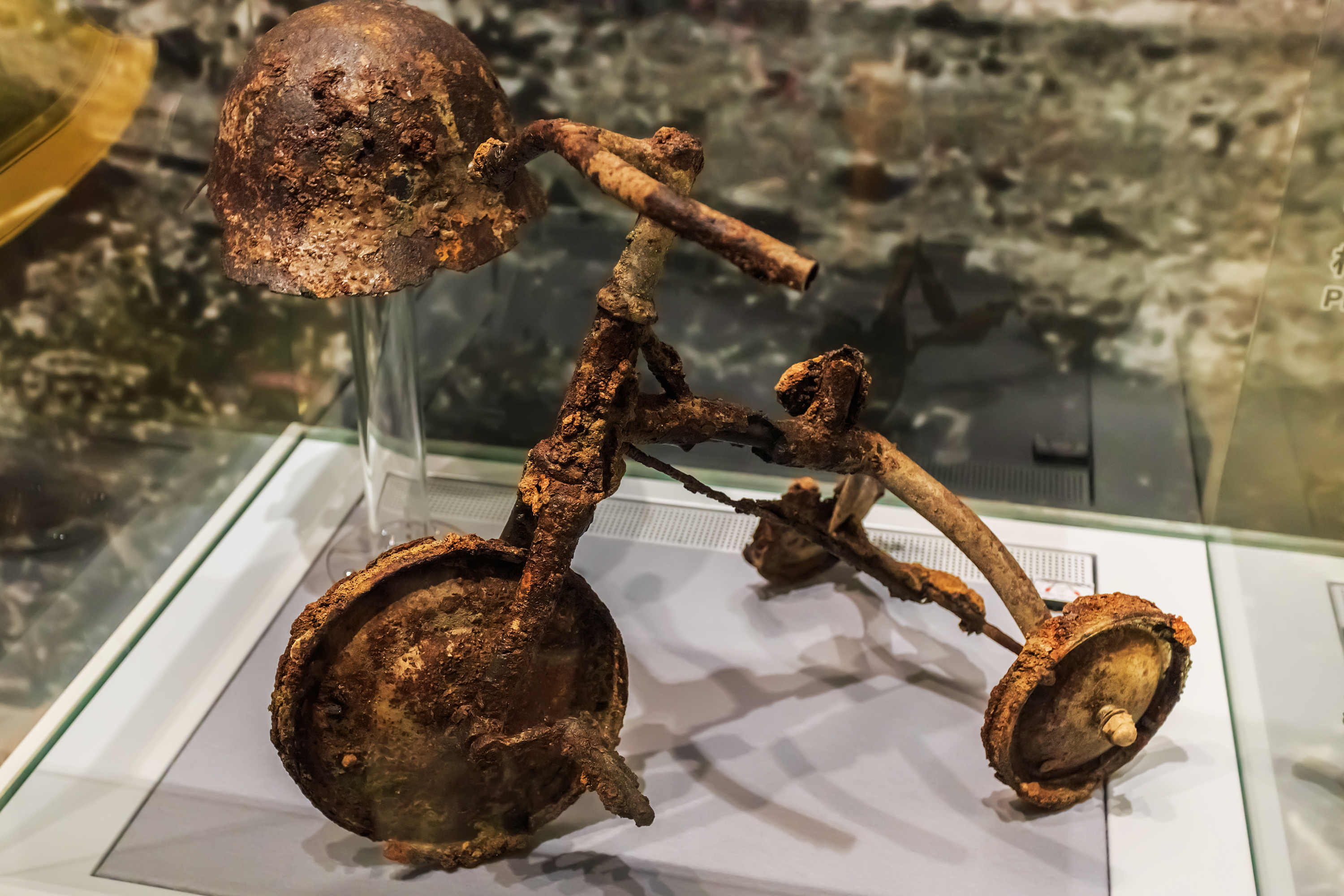Art and Culture
Hiroshima commemorates 69th anniversary of atomic bombing

Hiroshima Peace Memorial Museum in Hiroshima, Japan. Donated to the museum after buried for 40 years with Shinichi Tetsutani, the victim of the bomb. Cowardlion / ShutterStock
HIROSHIMA, Japan — Hiroshima, the city that suffered U.S. atomic bombing in 1945 during the World War II, commemorated the 69th anniversary of the bombing on Wednesday at the city’s Peace Memorial Park.
Addressing before survivors of the attack, their descendants, peace activists and officials, including Japanese Prime Minister Shinzo Abe and U.S. Ambassador to Japan Caroline Kennedy, Hiroshima Mayor Kazumi Matsui called nuclear weapons as an ” absolute evil” that robbed children of loving families and dreams for the future.
“To eliminate the evil, we must transcend nationality, race, religion, and other differences, value person-to-person relationships, and build a world that allows forward-looking dialogue,” the mayor said.
Meanwhile, Matsui said that the Japanese government should aware that the country has avoided war for 69 years due to the war-renouncing constitution, referring to a decision last month by the Abe cabinet allowing Japan’s Self-Defense Forces (SDF) to exercise rights to collective self-defense.
“We must continue as a nation of peace in both word and deed,” the mayor added.
Japan’s pacifist constitution banned the country from using force outside Japan, but the collective self-defense rights gave green light to the SDF to combat overseas for countries having close relations with Japan.
Japanese experts on legislation said the cabinet decision has major legislative defect, while the majority of Japanese oppose the rights to collective defense, according to latest poll.
For his part, Abe said during the ceremony in Hiroshima that “as the only country to have come under nuclear attack in war and experience its horrors, Japan has a responsibility to realize a world without nuclear weapons, and to continue conveying their cruelty to future generations and to the world.”
To accelerate Japan’s surrender in the WWII, the U.S. forces dropped an atomic bomb on Hiroshima on Aug. 6, 1945, killing an estimated 140,000 people.
Another atomic bomb hit Nagasaki on Aug. 9 the same year, and Japan surrendered to Allied Forces on Aug. 15, six days after the Nagasaki nuclear attack, bringing an end to the war.





















